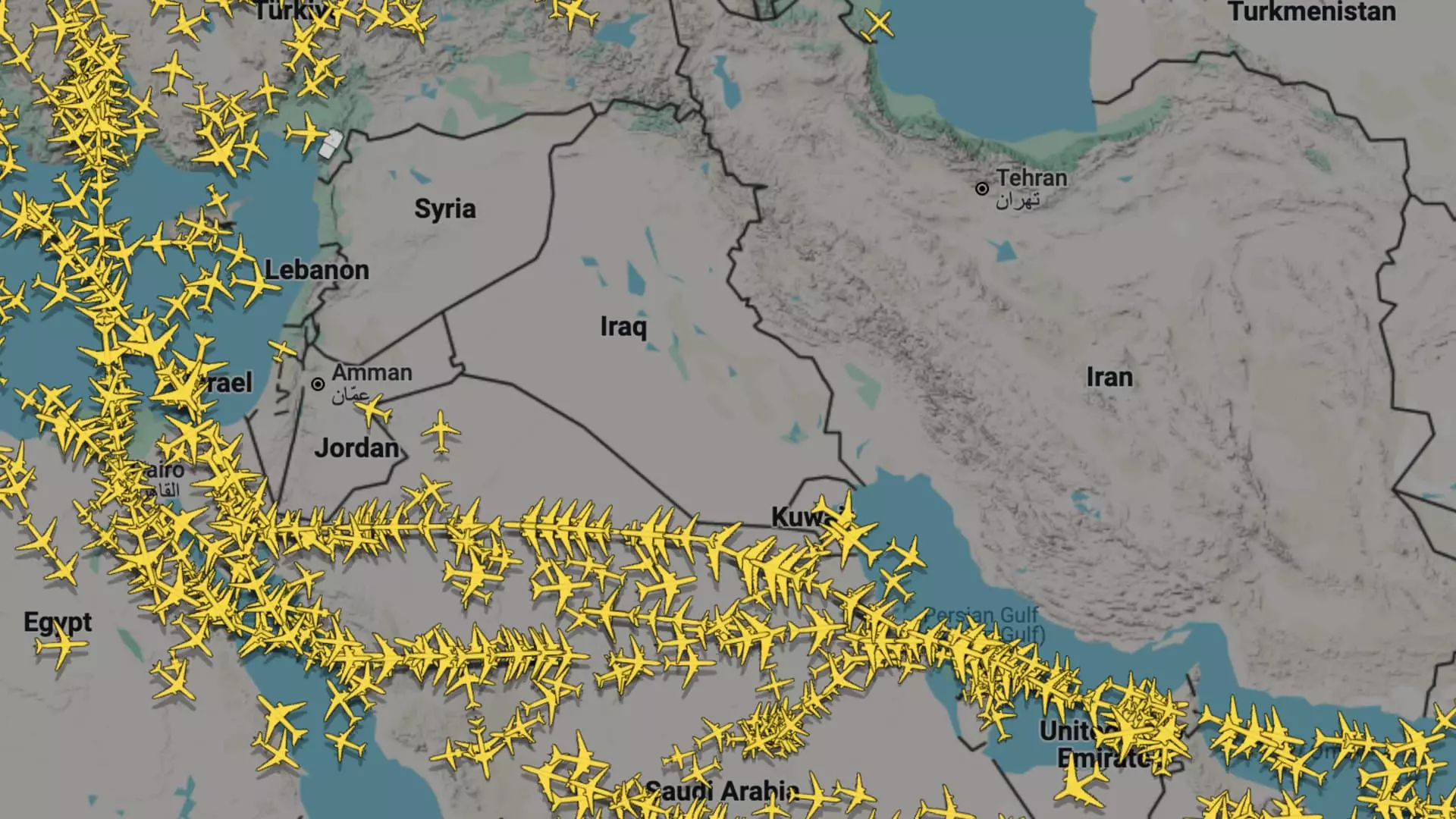As the ripple effects of geopolitical disturbances reverberate around the globe, airlines have been forced to make alarming decisions regarding flight safety. Recent events surrounding the escalating tensions between Israel and Iran have compelled numerous airlines to cancel flights to Israel, marking a significant shift in an industry that has worked diligently to recover from the pandemic-induced downturn. Delta Air Lines, for example, announced a suspension of its service to Tel Aviv, halting flights that had just resumed a little over a month ago. This decision is not merely a logistical hiccup but signals the severity of the situation and raises questions about how airlines prioritize passenger safety over potential profits.
Aviation Industry on Edge
The turbulence doesn’t stop at Delta; various major airlines, including United Airlines and Emirates, have made similar announcements, leaving passengers stranded and complicating travel plans across the globe. As Israel engages in military actions, the airspace over the Middle East becomes increasingly perilous. Airlines are now skirting entire regions to avoid risk, resulting in not only canceled flights but also longer, more expensive routes that affect the overall economy. With every flight cancellation comes a lost opportunity for connections and commerce, revealing the fragility of airline operations in politically unstable environments.
Safety vs. Profit: A Tenuous Balance
What fascinates me—and perhaps concerns me most—is the balancing act that airlines perform between maintaining safety protocols and pursuing profit. While suspending flights might seem like a responsible move, it also reflects a relentless pursuit of passenger demand. Just last week, Delta indicated a willingness to increase service in response to “strong winter demand,” a statement that now seems painfully optimistic against the backdrop of international conflict. It’s as if the airline industry lives in a state of denial, convinced that traveler sentiment will remain unaffected by the shifting political tides.
Impacts on Global Connectivity
Moreover, this turn of events poses significant implications for global interconnectedness. Economic ties that bind nations together are jeopardized when airlines like El Al and Lufthansa ground flights indefinitely. Travelers find themselves in limbo, facing difficulties that stretch far beyond mere inconveniences. It’s a stark reminder that the aviation sector is far more than just an industry; it serves as the lifeblood of international relations and commercial exchanges. Yet, how can it flourish when it finds itself entrenched in geopolitical strife?
Consumer Choices and Travel Vouchers
Amidst the panic, airlines have sought to ease the burden on their passengers through travel vouchers and fee waivers, yet this feels more like a Band-Aid on a festering wound. Consumers are presented with options that are often inadequate to address the root cause of their frustration—namely, the unpredictability of air travel in a volatile global landscape. The sense of uncertainty is palpable, making travelers think twice before planning international trips, especially in regions prone to conflict. This raises a crucial question: How long can airlines continue to operate under such duress before their carefully crafted business models unravel?
The situation reflects a growing concern—a storm brewing not just in the skies, but in the very essence of what it means to traverse the globe. With critical changes seemingly forced upon an industry striving to recover, the question looms: will airlines find a way to navigate this turbulence, or will they be forever altered by the uncertain winds of conflict?

